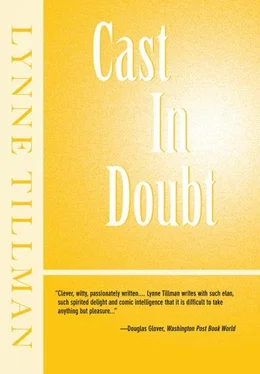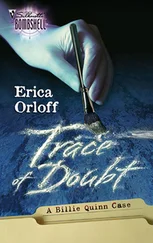My Gwen. She insists that if one remembers one’s dreams one can shake off the night’s bad news and rise up — at least leave one’s bed. I force myself to remember my dream; I often forget. It comes in bits and pieces, one entailing the next. Ah, yes, I see it now. It must have been influenced by the Gypsies. I too am wandering and homeless. Then I am in a room. It is depressing to inhabit, with a single light bulb hanging from the ceiling over a cotlike bed that is unmade. It is the kind of cheap room one might have found on Forty-second Street during the forties or fifties, or in novels about the people who live in those sordid places. I would never. I leave the room to roam about a large building. I take an elevator, which fits one person only, but I must pull a rope in order to make it move. Come to think of it, it is like the freight elevator in the building where my father had his office for many years. And had his secretary! The elevator door eventually opens — I am afraid that I will never reach the right floor — and I walk into the hallway. I am near the principal’s office. It seems to be a school.
That is all, but there is a good deal of anxious wandering in it. I assume it has to do with looking for Helen. If I were Gwen, I might become the punster and enjoy the movement from roam to Romany to romance. I did think, last night, of Bizet’s Carmen when the Gypsy girl in the striped bathrobe danced. The word “Gypsy” comes from Egyptian — the Europeans thought the Gypsies were Egyptians when first they encountered them, hundreds of years ago. They don’t look Egyptian to me. I would like to jot down all these thoughts right now, but there is too much bustling going on about me. I finally move and arise from bed and stick my head out the tentlike structure I slept in. I am in my pajamas, but how I got into them, I do not know.
By the fire is the elderly Gypsy woman who spots me and, in a loud voice, announces that she will read my fortune. Suddenly I remember that, in my dream, the elevator could not go up; it could only go down. That is most ominous. I want to tell the woman that I abjure any kind of fortune-telling, but feel it would be discourteous to do so. I walk toward the group and the fire, my blanket tied around me. Roman, the winsome lad, hands me a cup of strong coffee and a sweet roll. He also hands me a postcard dated from World War II, a well-known photograph, of some Gypsies being captured by the Nazis. I thank him solemnly.
This morning the old Gypsy woman is draped in many layers of clothing, her body lost under the colorful fabrics and scarves that enshroud her. One scarf, of bright blue and green, is tied rakishly about her forehead and covers her gray hair. I have no idea how old she is. Perhaps my age? Silver bracelets dangle from her plump wrists. She takes my left and right hands in her own and pats each palm, as if the skin could be flattened, stretched and unfurled for better reading.
“Ah!” the woman exclaims, “ah! You are in someone’s mind, someone’s heart. You are in their dreams. You are needed. You are looking for someone.” She stops abruptly as if stung by a bee. She peers closely at, nearly through, it seems, my palms. She shakes her head from side to side. The woman continues: “I see something…” But then she stops again and removes her eyes from my palms to seek my eyes, into which she stares intently, even angrily. She lets go my hands, sharply. They drop to my sides pathetically. “You cannot see,” she intones. “You do not learn. You only look for the right things.” Then she turns away from me to poke the fire.
Her fierceness is stunning. Though I accept nothing that she has spoken as the truth, for I reject prophecy, and remember all too well how much I myself spoke last night and how much I drank — every Gypsy knew I was looking for Helen and much more — I am rather disconcerted. It is early in the morning to hear such things. Probably it is Helen who dreams of me, who needs me. If I were to believe any of this, and I do not. It is as if I were thrust into that scene in Macbeth when the three witches chant over a steaming caldron. But one sentence particularly provokes me. “You only look for the right things.” It seems a paradox, for how does one know ahead of time what is or will be the right thing to look for?
Pondering a paradox, with a blanket wrapped around me in the midst of an encampment of strangers, I must be a foolish spectacle. Perhaps it is — I am — an amusement to the others who stand nearby. Embarrassed and ultimately annoyed by the old woman’s presumption, I decide to leave that very instant. I return to the tent where I slept to dress and gather my belongings. Then I make my way around the group to offer thanks for their hospitality.
But I am arrested in my departure by the young man, by Roman. He begs me to allow him to accompany me on my journey. Under ordinary circumstances I would have said yes — I had already begun to imagine that I could be this clever young man’s teacher, and he my amanuensis, and that he could benefit from my worldliness and knowledge, and so on. Gently I explain to him that I must be alone on this trip. His disappointment is palpable and I nearly relent. But something holds me to my conviction. Instead I offer him my address. I write it down on a small piece of paper and urge him to visit me soon. He takes the piece of paper and folds it twice and tucks it into the pocket of his shirt — he is dressed, by the way, like any young Greek man; no one would know he is a Gypsy. Then he pats his shirt pocket, which is over his heart. He pats it several times. He stares deeply into my eyes. My heart leaps. I am astonished, even mesmerized by this display of unexpected affection.
We are not alone. All this occurs in the midst of the group, who are no doubt aware of us and this encounter. What do the Gypsies think of me and of this intimate, if not romantic, episode? Suddenly I wonder if they know or suspect that I am a homosexual. Would it matter to them? I cast my eyes about the campsite. Everyone is going about his or her business. Probably they think I am rich. That may be all that matters. I do not know.
Together Roman and I walk to my rusty old car. I note their two new Mercedes parked behind some trees. As I get in, Roman holds the car door and tells me he will visit me, absolutely. And soon. He touches my arm. I am more than touched. “Look for Helen well!” Roman calls out as I drive away. “Make a good journey!”
By offering Roman my address, didn’t I, I think with pride, demonstrate to the fortune-teller that I don’t always look for the right things? Am I not taking a chance with Roman? Is this merely foolish pride?
In the privacy of my car, I repeat his name aloud several times. Roman, Roman, Roman. With a start and a great deal of pleasure, I realize that in French his name is the word for novel. And is it the French who are fascinated by the Gypsies and who, I believe, dominate the field of Gypsiology. I experience a deep satisfaction that bubbles and flows through my languid body like lava down the side of a volcanic mountain.
It was only later in the day that I was able to record some of the impressions I had gathered. I felt privileged to have been in the Gypsies’ company. Though I had momentary doubts, I was mostly assured that they liked and accepted me. I did not know why. Perhaps I held steadfastly then to what dear Gertrude noted about the writing of The Making of Americans : “Whether they are Chinamen or Americans there are the same kinds in men and women and one can describe all the kinds of them.” I was not afraid that the Gypsies would steal from me or kill me. I didn’t know why, either. The simplest explanation was that I did not want to think these things, things I would ordinarily have thought. It was also true that up until that night I had had no real or intimate experience of the Gypsies and had, prior to Helen’s friendship with one and my reading about them, maintained only predictable and prejudicial notions about them.
Читать дальше












